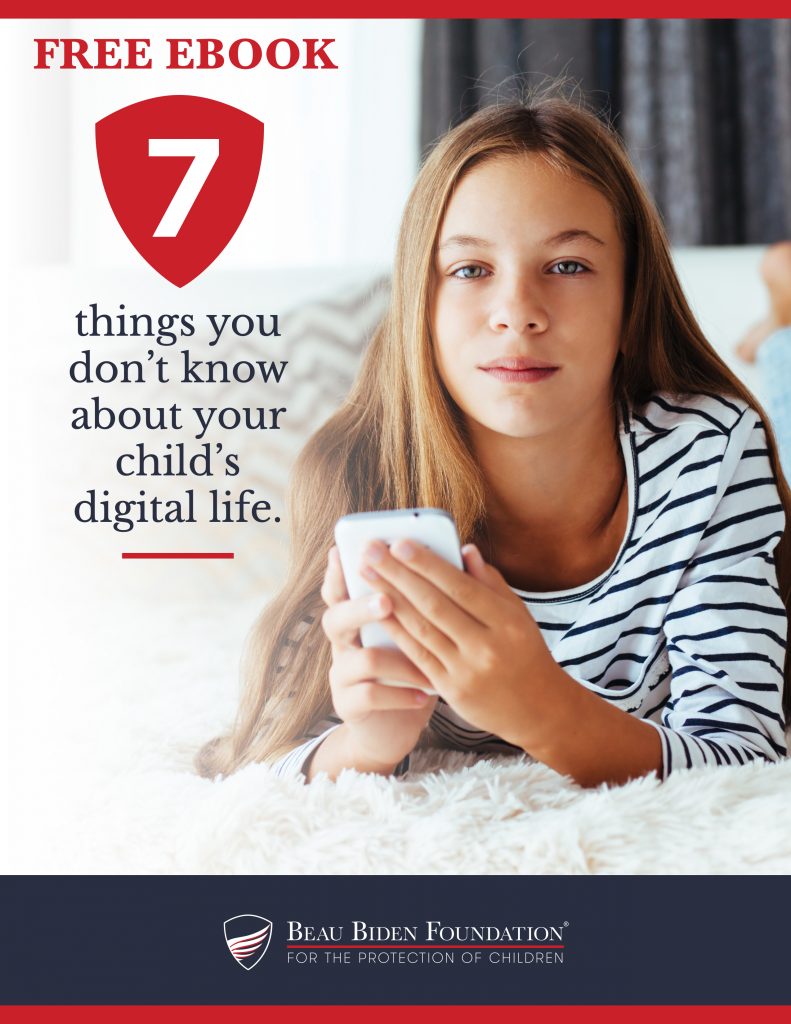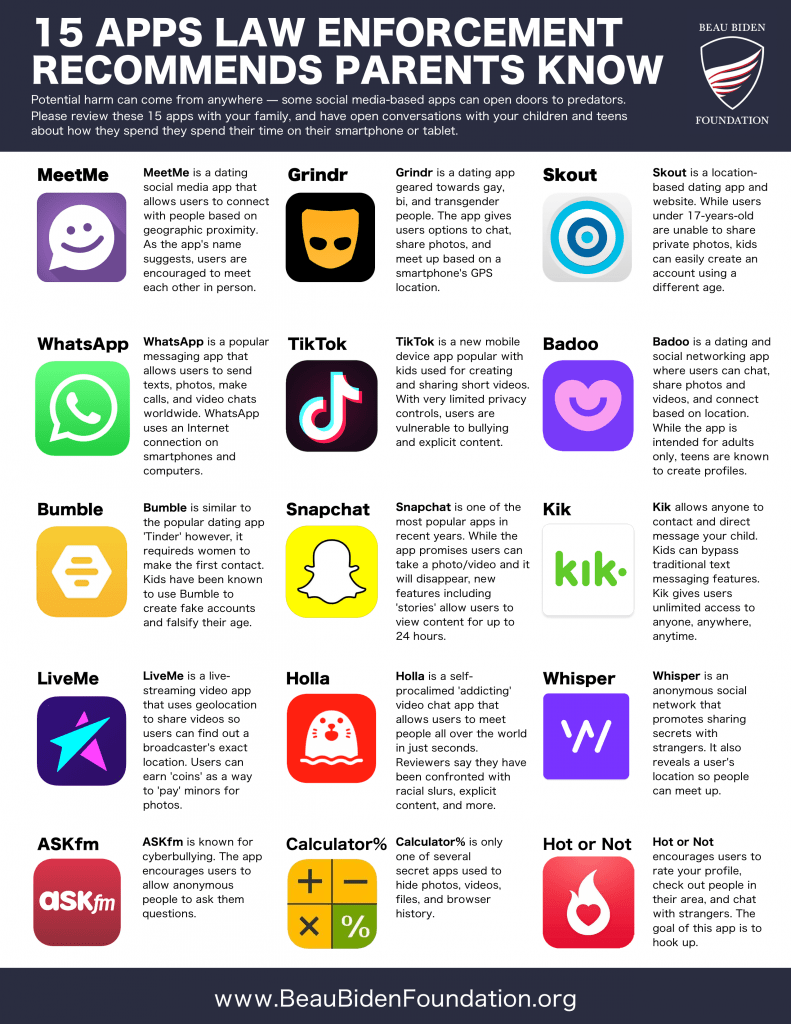Protecting children while they’re online is more critical than ever. Every day, there are over 500,000 predators online prowling for unsuspecting children.
The Internet Crimes Against Children (ICAC) Task Force is now receiving over 944,000 reports or alerts PER WEEK of sexually explicit images of children online – this far surpasses the 250,000-300,000 reports received prior to the current health crisis.
The largest growing population of self-produced sexually explicit images are by children between the ages of 8-9 years old!
Who is asking children for these images? Predators. How can families help combat predators? By knowing about their existence and taking steps to educate themselves and their family and friends with children.
Role model the behavior you would like to see in children; especially good digital citizenship.
Think about bullying: Walking by random people and shouting offensive statements, or following and stalking people isn’t socially acceptable. Then why would we practice these behaviors online? Our actions in real life should reflect our behavior online and vice versa.
From practicing kindness and patience online to only friending people we actually know, demonstrating good digital behavior is vital to keeping children safe online. Here are a few ways you can help be a role model in a child’s real – and digital – life:
Remind children that the Internet is both PUBLIC and PERMANENT. Send is forever.
No one should send mean or hurtful messages. Talk to your children and teens about the long-term implications of everything they post. Nothing is ever truly erased from the internet.
Sharing intimate details of your lives or suggestive pictures in a text or SnapChat® can be very dangerous. Once one of those pictures is shared, all control over that photo is immediately lost and has the potential to go global. Imagine if an inappropriate picture of you – OR YOUR CHILD – was discovered and made public. Send is forever.
Respect everyone’s in-person and online boundaries – just like the “Golden Rule,” treat others online the way you want to be treated.
Stress to children and teens that schools and employers will often check an applicant’s social media profiles.
We’ve all seen the reports of celebrities and athletes released from a contract for something they have posted in the past – a misogynistic or racist tweet, a post with bullying or harassing comments, etc. Employers often have the right to discipline up to termination employees who behave offensively or illegally in person OR online! When it comes to applying for college, it could very well sabotage an application, or cost an internship opportunity. Your online behavior—even photos of inappropriate offline activity, can affect getting into a first-pick college or university — or a job in your field of study. Remind children: your past will always catch up with you, so think before you act, think before you post — send really is forever.
Turn off location sharing and access to an electronic devices’ microphone and camera unless they are being actively used.
When you’re not using the microphone or camera on your device, make sure access to a device’s microphone and the camera is turned off. When purchasing a phone think about options your children really need. Walkthrough the steps together and explain why –and how- this kind of access gives others eyes into the home. “We have to make sure to disable the access to our mic’s and cameras. We do this to help protect ourselves. Not everyone on the Internet can be trusted to enter our home.”
Sign an Electronic Device Agreement.
Set clear expectations for the use of any electronic device. Establish boundaries for acceptable use around those expectations. Define consequences for misuse of the device and Internet access, and levy those consequences swiftly and surely.
You can help facilitate this by downloading our Electronic Device Agreement here: https://www.beaubidenfoundation.org/electronicdeviceagreement. Review this contract with your child and sign it with them. Having rules and expectations written down really helps children understand expectations, boundaries, and consequences.
Children look up to adults, you are their role model in their real and digital lives. They mimic what they see. Demonstrating good digital citizenship is an important part of teaching children model behaviors, that also keep them safe.

Seven Things You Don’t Know About Your Child’s Digital Life
Please click here to download our informative and FREE ebook.

